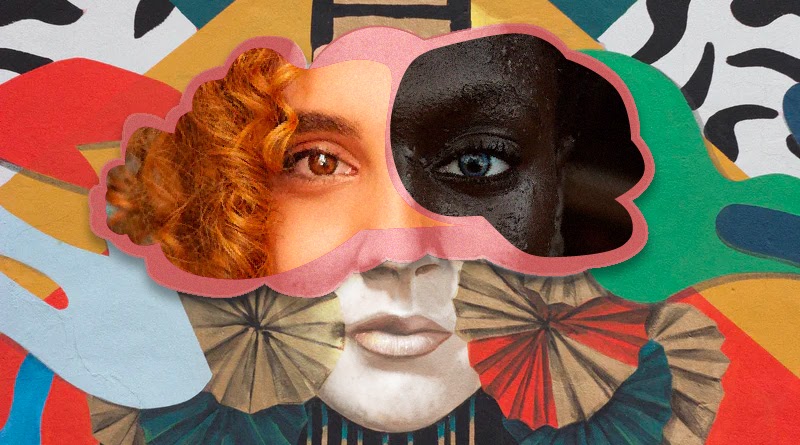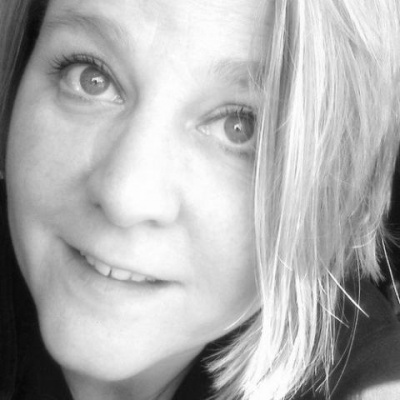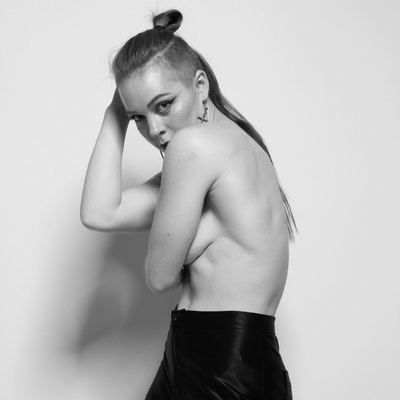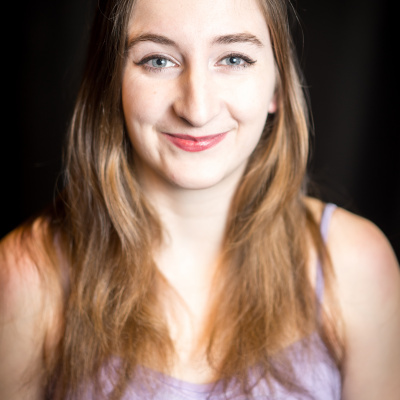The Next Wave in the #METOO Movement, Listening to Victims’ Voices in Circus
Content warning: emotional, physical, sexual abuse and harassment.
The creators of Victims_Voices in Quebec must have sensed the change in the winds of social justice when they created an anonymous Instagram account where victims of physical, psychological and sexual abuse could tell their stories, find support, and demand accountability. It caught on in the wider culture, sprouting groups in each city of Quebec, fanning out to other geographical areas as well as genres (cinema, LGBTQ, academia, and yes, even circus).
When the first Instagram post was published in July of 2020 on Victims_Voices_Circus, there was already a format. No full names would be used to describe the perpetrator, and the victims themselves would remain anonymous. Trigger warnings for each post image describe the nature of the abuse to avoid reactivating trauma for those reading the details. These trigger warnings themselves are a striking list: power abuse, sexual harassment, extortion, sexual assault, intimidation, attempted rape, rape, physical assault, death threat.
Echoing Voices
These heart-breaking stories document not only the types of abuse of power that are occurring in the circus sector but also the widespread prevalence of abuses. Beyond the painful accounts of the assaults, there is often the added insult of the survivor recounting being shunned by peers, doubted by authorities, and of workplaces blaming the victims for reporting abuse. When the #Metoo movement blazed across social media in 2017, it seemed it might be possible to finally unpack and end systemic sexual intimidation and abuse in society. Survivors banded together to tell their accounts and the world seemed to listen… but after those cathartic confessions and connections, actual change eluded society and what little impact emerged hardly seemed to reach the circus world. But V.V., one of the organizers of the Victims_Voices_Circus Instagram account, likes to think of these social justice groups and their impact in terms of water analogies, “We know there’s going to be a next wave of denunciation. We have seen it with #metoo and this is why we are here today. It’s like a pot of boiling water. If we just put a lid on it, it will still be boiling underneath. We need to turn the stove off. And now it’s time to find a way, all together, to turn it off.”

Aerial Emery, a US-based professional circus performer, graduate from ECQ, and member of a circus family, told CircusTalk her story, “I think this experience pretty much sums up how I feel our industry treats stories of abuse: I was working for a company and the boss of a department (not the department I was in) physically assaulted me in front of other employees. No one stood up for me. The next day when I asked why no one did anything, they all had the same response, ‘You cannot stand up to him’. Their response and attitude sums up so perfectly how so many of us feel. We cannot stand up to them. They tend to be well respected, loved, and hold great positions of power. Who will believe us if we come forward?”
She continued “When I reported him, my point was pretty much proven. I was bullied, I was harassed, and the company didn’t initially fire him, under the guise of ‘He is too important. We have no one to replace him.’ How are you supposed to feel safe after that? Learning that someone who assaulted you (and others) is so important to the company they are going to keep him around because he is so ‘important’. Was I that replaceable? Did I not matter to them? Was I just ‘causing them problems’? They really made me feel like I was causing problems, and that my safety or emotional well being didn’t matter. I am still in therapy trying to heal from the trauma this caused me and trying to understand how this was not my fault. Not so much the trauma of the actual assault, but the trauma of coming forward, being harassed, and being made to feel like I created a massive problem when really all I did was get assaulted by a man twice my size.”
When we asked V.V. how prevalent the instances of abuse were in the circus sector, her answer was not reassuring, “I would say it’s really common. I’ve gone to circus institutions, and I went to a circus school and worked for different companies doing gigs around the world. In most of those places, I was harassed or witnessed it. Sometimes it would be less “intense”–through text messages, or some kind of extortion, but still [it happened] in most work settings, by people from various roles: like photographers, directors, riggers, public members and coaches.”
“It happens at every level, and also between artists and students at school. It’s pretty difficult [to deal with] …because we have this concept in circus of the family and we are told to trust our family. And some people break that trust. And then your group doesn’t believe you when you say your family is no longer trustworthy. They think that you are trying to break up the family. That is the hardest part and I think that is why people are so silent about it…” Breaking that stigma of reporting on abusers is why she and her co-organizers decided to start the Instagram account, and also why they chose to remain anonymous for now.

We have all read the news and witnessed the stream of sexual abuse victims coming forward with their story in the past few years, with cases of alleged abuse perpetrated by Barry Lubin (AKA Grandma the clown), child trafficking and sexual abuse in an Indian circus, and sexual assault involving students at a professional circus school. But V.V. digs even deeper, alluding to a truth many won’t admit, “There are so many people that are protected right now because of fame, because of their reputation, because they are good artists or good coaches, or they built a great company. There are taboos about mentioning them, even though we all know and we hope that those names will get called out and that the victims will see them and realize that they are not the only person (who was victimized), and know that we have power together.”
Beyond the personal accounts, there is research indicating that the performing arts world is a hotbed for this type of behavior. “What #MeToo Means for Corporate America,” a study conducted by Center for Talent Innovation and written about in Variety by Todd Spangler, shows that within the media and entertainment industry, about 41% of women come forward about sexual harassment by a colleague or boss during their careers, the highest rate within white-collar industries. A study about the extent of harassment in theatre done by The Stage with Georgia Snow, shows that one in three theatre professionals and students have experienced sexual harassment. According to research done with Entertainment Assist and Victoria University, “In-depth interviews revealed a toxic, bruising work environment, extremely competitive, evidence of bullying, sexual assault, sexism and racism which is ignored or dealt with inadequately. It is recommended that cultural change is required to provide a more supportive environment for all sectors of the creative industries.”

V.V. agrees, stating that the main goal of Victims Voices is to provide that supportive environment, but not necessarily to bring criminal justice to every perpetrator, because not all of the abuses are legally recognized as criminal or severe enough to make them a danger to larger society. Although V.V. says some actions may not be criminal in the eyes of the law, they may still cause trauma and be considered highly unprofessional behavior which warrants action on the part of employers. V.V. says their real focus is on the survivors of the abuse and helping to prevent future abuse.“What is really sad is when you hear a story of sexual misconduct during the artist’s first contract or interaction in the circus world. Then they think it’s going to be that way for the rest of their circus career. This is so wrong. We need to reach them before they get to that point; at school or in workshops or as public information, as a kind of warning…We need to prepare them that maybe your director is going to assault you…And people are going to talk about your body…and harass you. And (yes), you’re going to be “so happy” to work and travel, and finally live your circus dream, but you/we still have to stand up and get help if you are a victim of sexual or physical abuse. It is not normal and it should not be normalized.”
The nature of physical, psychological and sexual abuse is that it can come in many degrees and forms. It also does not discriminate toward age, race or gender. There are layers of wrong-doing in the industry, ranging from inappropriate comments to human trafficking, all of which require a nuanced understanding of consent, ethics, basic human rights, and professionalism. The cases of abuse touch every aspect of our worldwide industry, effecting some populations more heavily than others. Though no one is immune to abuse, everyone’s voice to eradicate abuse in this fight matters.

Shenea “Stiletto” Booth, is a decorated world champion gymnast who went on to have a thriving career as a circus artist, including performing in Cirque du Soleil’s Varekai. Booth tells her story of childhood sexual abuse and of an abusive circus duo partnership on an episode of her podcast called Live Like an Acrobat. She dedicated the episode to world-class Ukrainian circus hula hoop artist Alla Klyshta, who was allegedly murdered by her boyfriend in 2019. Booth says, “We make it look easy and adventurous, but working and traveling in these spaces alone or with a male companion that we trust makes us incredibly vulnerable to nefarious circumstances…I could have been, we all could have been, Alla Klyshta–never arriving at our show.” She calls for #MeToo to have its moment in circus.
 Booth recently spoke out about her abuse as well as racism within the circus community on The Artist Athlete Podcast by Shannon McKenna. She compares the emotional labor of educating people on racism with educating people on sexual assault in circus and explains that she was asked to consult and work on influencing policy and structure as a survivor in and around USA gymnastics and sports. Booth says she does this for free because it is very important to her, but she admits that it is exhausting to be in high demand as a consultant and educator on top of her circus career. We spoke to Booth about intersectionality and she said, “As a black woman and survivor, I have felt most times invisible in my pain and fight for justice. Being told that I, as a young black acrobat, didn’t have what was deemed the personality to be vulnerable to abuse; I want the suffering and justice of black women and girls to be humanized and recognized. With continued calls for justice for Breonna Taylor, I want our circus community at large to continue to remember that were it not for the brutal loss of this precious African American woman we would not be having such transformative action-oriented dialogues within our community in all of their painful power and awful glory.”
Booth recently spoke out about her abuse as well as racism within the circus community on The Artist Athlete Podcast by Shannon McKenna. She compares the emotional labor of educating people on racism with educating people on sexual assault in circus and explains that she was asked to consult and work on influencing policy and structure as a survivor in and around USA gymnastics and sports. Booth says she does this for free because it is very important to her, but she admits that it is exhausting to be in high demand as a consultant and educator on top of her circus career. We spoke to Booth about intersectionality and she said, “As a black woman and survivor, I have felt most times invisible in my pain and fight for justice. Being told that I, as a young black acrobat, didn’t have what was deemed the personality to be vulnerable to abuse; I want the suffering and justice of black women and girls to be humanized and recognized. With continued calls for justice for Breonna Taylor, I want our circus community at large to continue to remember that were it not for the brutal loss of this precious African American woman we would not be having such transformative action-oriented dialogues within our community in all of their painful power and awful glory.”
What Justice Looks Like
We asked V.V. how a platform that recognizes all of these ethical transgressions can serve everyone. She agreed that it is a difficult process, “It’s not possible to police all of that. What we want to work on is education–to teach people what is wrong in our community and that sexual abuse exists all around us in circus. We want to give “tips” on how to respond to sexual harassment, how to set good boundaries, and to make people respect them. On your first day at work if you have a workshop about consent, boundaries and respect, then most likely during the contract, if a person is harassed, they will feel more empowered to step forward to report the harassment and the company or organization will have more incentive to take action on their behalf.”
Emery has additional actionable ideas and calls for “companies to listen to us, and cut ties with these abusers. I hope we are able to create a space where victims are able to come forward no matter who assaulted them…I hope more companies look into having some kind of HR department, and a protocol for abuse allegations. I hope companies put in contracts that physical, sexual, and emotional abuse is not to be tolerated. I hope people start believing us and hold these abusers, who are in such great positions of power, accountable. I hope circus schools…put in policies that don’t allow coaches to attend parties with the students…I love that circus doesn’t have the same boundaries of a traditional 9-5 job, but it is being proven over and over again that we need boundaries because the people in power cannot respect our personal boundaries. And these people in charge can’t seem to hear us as we yell ‘NO’ from the top of our lungs.”

Setting boundaries in a small group or institution can be complicated. Thankfully, there is a precedent for it– in the circus education field at least. We reached out to multiple circus organizations and schools to ask about their policies regarding abuse and harassment. ECQ’s Tim Roberts, Director General, weighed in. Although Roberts says there have been no major ethical issues brought to his attention since his arrival in 2016, there has been one discipline case he wrote a written warning for. His guidance in how to handle the case came from one important source, the FEDEC Ethics Charter, a tool Roberts says the school helped develop in collaboration with teachers from across the members of the organization, and that it guides their policies.
Roberts says he discovered a culture upon his arrival in Quebec City at ECQ that required some adjustments to fit the ethics charter. Because the institution needed to differentiate itself from ENC in Montreal, the staff and students often tried to do things differently. For example, the group saw themselves as a family unit, which meant it was in the habit of accepting behaviors that a workplace would not be as comfortable with. It sometimes blurred lines between professional and school life. “There had never really been a culture of discussion, so we took the time to educate everybody on how to discuss ethical problems without being defensive.”
“Little by little, we got there,” Roberts explains, “And we were able to discuss ethical questions like teachers hiring students for jobs on the weekends and what that could mean in regards to assessment, or socializing with students…I have made it clear to everybody that socializing has its risks, but have not come down to expressly forbidding teachers from socializing. Quebec City is very small and practically everybody lives in the neighborhood. So they will be in the same bars and restaurants and stores. It would be extremely difficult to function with a restriction like that. However, we hold regular discussions, there are training opportunities, and I make it clear what I accept in the workplace.”
En Piste recently responded to the rise in allegations and personal accounts of abusive practices in the Canadian circus community with the following statement from the executive director, Christine Bouchard: “In the wake of the denunciations of the last few weeks, several people have contacted us. As an alliance of professionals, we must play a leading role in prevention and support in our community in order to foster a healthy work climate where everyone can practice their profession without fear.”
recently responded to the rise in allegations and personal accounts of abusive practices in the Canadian circus community with the following statement from the executive director, Christine Bouchard: “In the wake of the denunciations of the last few weeks, several people have contacted us. As an alliance of professionals, we must play a leading role in prevention and support in our community in order to foster a healthy work climate where everyone can practice their profession without fear.”
CircusTalk attended En Piste’s Webinar with l’Aparté: Against Harassment and Violence in the Circus Arts, where representative Nadia Samy explained how her organization l’Aparté provides consultations for victims of sexual and/or psychological abuse within the cultural and arts sectors. In this session, Samy defined what harassment and abuse look like in the workplace, addressed the do’s and don’ts of going public with your testimony, and explored the legal and non-legal methods of seeking justice for the abuse. Some of these non-legal methods include meeting with your employer to discuss the issue and mediation with the aggressor or harasser. During the webinar, En Piste and Samy both stressed that anonymity was of the utmost importance. Participants could not see the names of other participants and questions asked during the Q&A session were also kept anonymous and answered thoroughly and respectfully. Samy outlined additional resources that can help in every step of the post-abuse process via l’Aparté.
The Medicine for What Ails Us
But how can an anonymous Instagram group mete out justice and healing where others have failed? Victims_Voices_Circus doesn’t claim to have all of the answers, but they do have an action plan. They intend to communicate with circus schools, circus organizations and circus companies about ways to prevent further abuses, offering advice and guidance. But first, they want to hear the stories and to let survivors of abuse know they are not alone and that healing can occur.
According to V.V., @victims_voices_circus is for the whole circus community. She says “We thought about how, in circus, we are like a little city in a big world. We’re all part of the community, and we all know each other. We all know there is [abuse] happening. And we’re always talking about names and everyone is saying those names, but the stories are never told. Now it’s time that we tell these stories and we hope people will associate them with the names.”
If you are thinking about sharing your account of abuse, V.V. says anyone who has experienced sexual assault or abuse is more than welcome to share. “We’re a hundred percent anonymous. We keep no tracking or record of any of the conversations. We always delete everything every hour… If you have any kind of sexual aggression, even if it’s humiliation, manipulation or people pressuring you to do something, or physical assault or being sent unsolicited sexual content, or if you have felt endangered or bullied, send your story to us.”
The effect of sexual assault and abuse on a circus career can be long-lasting. Emery says “I have avoided taking jobs that I know the men who assaulted me are on. I have lost a lot of friends and coworkers over speaking out. I am still not okay with it, and it still leaves me with a pit in my stomach… I am strong now, and brave, and I know speaking out is right, but that 18-year-old girl who learned ‘this is just the way circus is’ is still inside me, and she needs a lot of support and love.”
Editor’s Note: CircusTalk is committed to continuing to amplify the voices of harassment and abuse survivors in circus. It is our hope that this article is a conversation starter and not the stopping point. If there are additional facets of this conversation that we missed, please feel free to reach out to us or to pitch your article ideas.
Tune in to CircusTalk on September 15th for a related panel discussion from our Circus & Changing Realities 2020 series, moderated by Veronica Blair titled Abuse & Assault in Circus–Normalizing the Conversation.
Related content: Circus Saved My Life Until It Ruined It,Creating a Mental Health-Conscious Circus Environment; An Interview with Dr. Fleur van Rens
Sources: Andy Newman, “The #MeToo Movement Hits the Circus: ‘Grandma’ the Clown Resigns,” The New York Times. Gwyneth Rees, “India to Wales: The trafficked children rescued from the circus,” BBC News. Fiona Bradley, “Circus Saved My Life, Until it Ruined It,” CircusTalk News. Todd Spangler, “Media Industry Has Highest Incidence of Sexual Harassment Among White-Collar Workers, Survey Finds,” Variety. Georgia Snow, “Exclusive: Study reveals extent of harassment in theatre,” The Stage. Dr Julie van den Eynde, Professor Adrian Fisher, and Associate Professor Christopher Sonn, “Working in the Australian Entertainment Industry: Final Report,” Entertainment Assist and Victoria University. Shenea Stiletto, “Live Like An Acrobat Podcast Episode 10: #MeToo In Circus,” Live Like An Acrobat Podcast. Shannon McKenna, “Episode 81: REAL Life as an Acrobat with Shenea ‘Stiletto’ Booth,” The Artist Athlete Podcast. MAILLONS Project, “FEDEC Charter: Ethics and Deontology in circus arts education and training,” European Federation of Professional Circus Schools Christine Bouchard, “Invitation: Webinar with l'Aparté | This Thursday!,” En Piste Newsletter. En Piste, “Webinar with l'Aparté: Against Harassment and Violence in the Circus Arts,” YouTube.
Resources En Piste L’Aparte Victims_Voices_Circus Entertainment Assist RAINN
Do you have a story to share? Submit your news story, article or press release.






